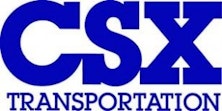
Currently, coal is a larger segment of most railroads’ shipping, and so 2012 was harder for the industry than 2013. The Bakken should continue growing, but even that implies a problem. The longer that growth continues, the more likely that pipelines will enter the area; according to Forbes, those pipelines charge $24 less per barrel than the railroads do. The other key here is that railroad companies are regional in scope, not national. Thus, some have more exposure to the Bakken, while others are more exposed to coal.

Source: The Association of American Railroads.
Burlington Northern Santa Fe, LLC (NYSE:BNI) is the most exposed. Sadly, though, Berkshire Hathaway Inc. (NYSE:BRK.B) owns the entire company, so you can’t directly invest in it. However, Berkshire Hathaway itself might be a good investment.
Not only does Berkshire Hathaway Inc. (NYSE:BRK.B) own one of the railways, but its tenth-largest stock holding is in ConocoPhillips (NYSE:COP), which, according to Bakkenshale.com, produced 24,000 barrels of oil equivalent per day in the last quarter of 2012 in the Bakken, and expects to reach 40,000 boe/d in four to five years.
Berkshire Hathaway Inc. (NYSE:BRK.B)’s conglomerate nature weakens its exposure to the Bakken, and hence, the potential upside — but also the resulting risk.
Furthermore, Union Pacific Corporation (NYSE:UNP)’s financials are solid, and it is coming out of the Great Recession a leaner, meaner machine.We can see evidence of this in its most recent earnings release, with its operating ratio was up by 130 basis points, and its diluted earnings per share up by 9%.
Furthermore, revenue was up year over year in all of its major segments except for intermodal and agricultural. The intermodal sector only fell by 1%, and the agricultural sector is heavily affected by the weather, making it less informative with regard to Union Pacific Corporation (NYSE:UNP)’s long-term potential.
However, it has similar advantages: its proximity to the Bakken, and just as importantly, a low exposure to coal — less than 10% revenue-wise in 2012. Its revenue also grew in all of its segments except for agriculture and for energy, which includes coal.
The one main upside here is that coal was the only sector where CSX Corporation (NYSE:CSX)’s revenue fell. Automotive had the strongest growth at 23%. In other words, an investment in CSX Corporation (NYSE:CSX) is not as much a Bakken oil play, but rather a bet on U.S. industrial output. With industrial improvement and CSX Corporation (NYSE:CSX)’s low P/E of 13.78, it might actually be an attractive bet, but it’s not a bet on Bakken Oil.
Norfolk Southern Corp. (NYSE:NSC)
is more of a bet on coal than anything else, with coal representing 26% of its revenue in 2012. Consequently, revenues and profits fell year-over-year but, thankfully, did not turn negative. Its revenue increased in all other sectors, with the strongest growth in automobiles at 18%, and did so while expenses were falling in almost every area, including compensation, rent and fuel.
Again, it has learned from the recession how to be leaner and more efficient. As such, it is well-placed to take advantage of a resurgence in industrial production, particularly automobiles. Also, if coal has hit bottom as some think it has, Norfolk Southern Corp. (NYSE:NSC)’s profitability and stock price will rise as coal resurges.
Wrapping up
Because the railways are affected by the fall in coal and the rise in oil, the Bakken oilfield won’t affect the industry’s bottom line really all that much. It will help western railroads and hurt eastern ones. Thankfully, the industry is leaner and more efficient coming out of the recession, and hence poised to take advantage of the resurgence of industrial production, particularly the automobile industry. As such, a railroad may well lay in your track to a higher return.
The article Should You Make a Bakken Oil Play With the Railroad Companies? originally appeared on Fool.com and is written by Paul Sangrey.
Paul Sangrey has no position in any stocks mentioned. The Motley Fool recommends Berkshire Hathaway. The Motley Fool owns shares of Berkshire Hathaway. Paul is a member of The Motley Fool Blog Network — entries represent the personal opinion of the blogger and are not formally edited.
Copyright © 1995 – 2013 The Motley Fool, LLC. All rights reserved. The Motley Fool has a disclosure policy.




